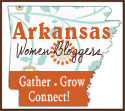 |
| Keith and Graham |
Well, the balloons didn't ascend
and it wasn't the 5th Dimension...
It was AIR SUPPLY!!
How awesome is that?

We headed out with our 'vintage' lawn chairs to the Friday night event for the Legends Balloon Rally at the Hot Springs Memorial Air Field.
Even though the wind precluded the 25-balloon ascension, there were twelve pilots who braved the elements and inflated their balloons. We were not disappointed.
 The Hot Springs balloon inflated right in the middle of the crowd.
The Hot Springs balloon inflated right in the middle of the crowd. The others rimmed the seating area waiting for the sun and the wind to go down. At just the right time...we counted down 10.9.8.7.6.5.4.3.2.1...GLOW! They glowed and then they twinkled...right up until the stars and Stars came out.
I am still amazed that we got to see Air Supply...Graham Russell and Russell Hitchcock...under the stars. They did all of their cover songs plus more. At one point while Russell took a break Graham sang a guitar solo accompanied by an exceptional keyboardist. Then he and Russell left the stage and meandered among the crowd. I got as close as I could to Graham and snapped...of course...I didn't get a picture. It focused, but no picture.

The best I could do was take a picture of the 'jumbo' screen of Russell after he had autographed a fan's T!
Listen:
We had no idea when we left to see the Balloon Rally that we would come home with a great memory!
The Balloon Festival in Albuquerque is on our 'Bucket List'...we started small and are working our way up!
Photo Album:
One More Song...


























